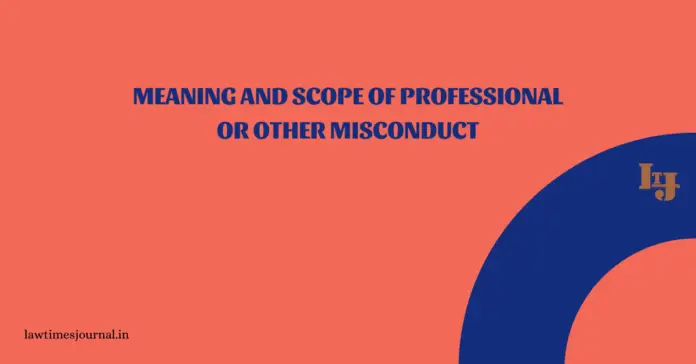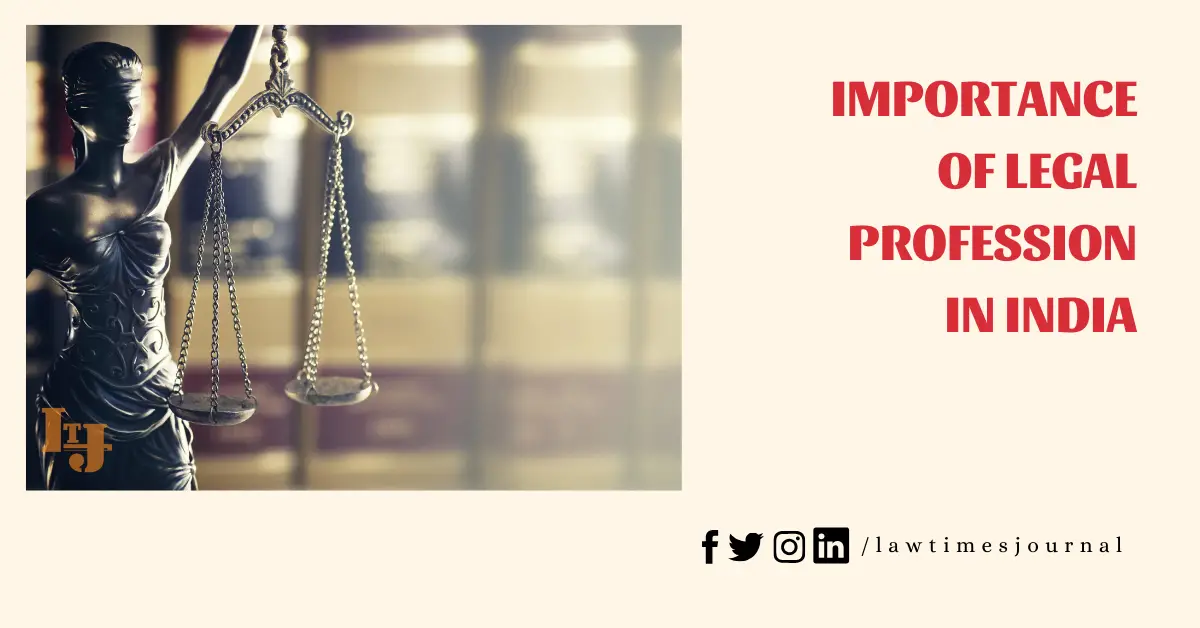
The Advocate Act 1961, talks about professional misconduct under Section 35 of the Act. Misconduct in a basic sense means unacceptable or improper behaviour, especially by an employee or professional person. Conduct means good behaviour and a good treatment given to others. According to Black’s Dictionary misconduct means “a transgression of some established and defined rule of action, a forbidden act, a dereliction of duty, unlawful behaviour, wilful in character, improper or wrong behaviour’. The synonyms are impropriety, mismanagement, misdemeanour or carelessness, etc.
The Advocates Act, 1961 and the Indian Bar Council plays a crucial role in providing rules and guidelines regarding the working, code of conduct and other matters concerning advocates in India.
The attributes of a profession are:
1. Existence of a body of specialized knowledge or techniques.
2. Formalized method of acquiring training and experience.
3. It establishes a representative organization with the profession as its goal.
4. Formation of ethical codes for the guidance of conduct.
5. The charging of fees should be based on the service but with due regard to the priority of service.
Instances of professional misconduct:
• Negligent for his duty
• Professional Negligence
• Favouring the opposition party
• Contempt of Court
• Not going to the court with clean hands
• Speaking lie about the case
• Changing Sides
• Improper behaviour before a magistrate
• Misappropriation
• Improper advice
• Giving false information
• Giving suggestion to bribe the court officials
• Disowning allegiance to the court
• Providing false evidence
• Forcing the prosecution witness not to say the truth.
Section 35 of the Act also says that an Advocate may be punished for professional misconduct or other misconduct although the terms misconduct and professional misconduct are not defined in Section 35 or any other provisions of the Advocate Act, 1961. The expression ‘professional or other misconduct’ is mentioned in section 10 of the Bar councils Act, 1926. by using those words it was made clear that the authority might take action in all cases of misconduct, whether in professional or another capacity.
If any misconduct is happened by any Advocate then the Court or any person or the Bar Council of India can complain about the misconduct. The complaint is done either to the State Bar Council or Bar Council of India. The procedure for complaining is if a person complains the same in the State Bar Council then the State Bar Council will look towards the case and refer it to the disciplinary committee.
Re: Vinay Chandra Mishra (AIR 1995 SC 2348), in this case, the court held that the license of the advocate might be canceled by the Supreme Court or High Court if any contempt jurisdiction is found.
“The views of the authors are personal“
Frequently Asked Questions
Which section talks about professional misconduct?
Section 35 of the Advocates Act 1961, talks about professional misconduct.
What are the attributes of a profession?
Existence of a body of specialized knowledge or techniques, Formalized method of acquiring training and experience, It establishes a representative organization with the profession as its goal, Formation of ethical codes for the guidance of conduct.
The charging of fees should be based on the service but with due regard to the priority of service.
Enlist some instances of professional misconduct?
Negligent for his duty, Professional Negligence, Favouring the opposition party, Contempt of Court, Not going to the court with clean hands, Speaking lie about the case, Changing Sides, etc.








